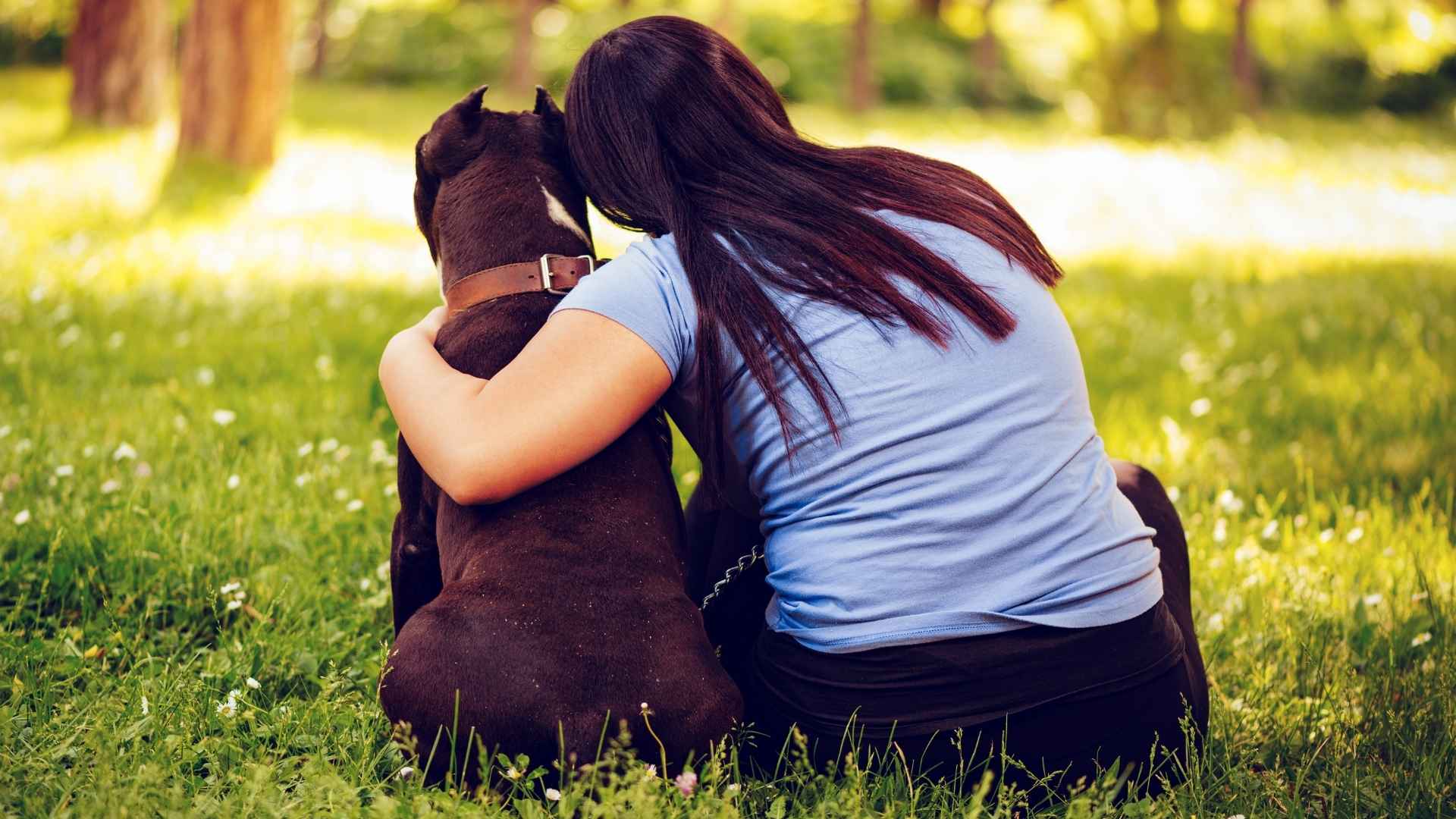Ever have one of those days where everything feels a little too much? That’s where emotional companion dogs come in—they’re like a warm, tail-wagging reset button for your soul. These pups aren’t just cute to look at—they have a special knack for picking up on your mood and offering comfort without saying a word. Seriously, how do they just know?
These dogs are more than pets—they’re emotional sidekicks who stick with you through thick and thin. Whether you’re feeling anxious, overwhelmed, or just need a little extra love, they’re right there with a nudge, a cuddle, or those big, understanding eyes that seem to say, “I’ve got you.”
Looking for a calm presence that never judges, always listens, and somehow makes everything better with a wag? You’re in the right place. Let’s dive into the world of dogs who were born to be by your side, heart-first.
Emotional Companion Dog Breeds
1. Golden Retriever
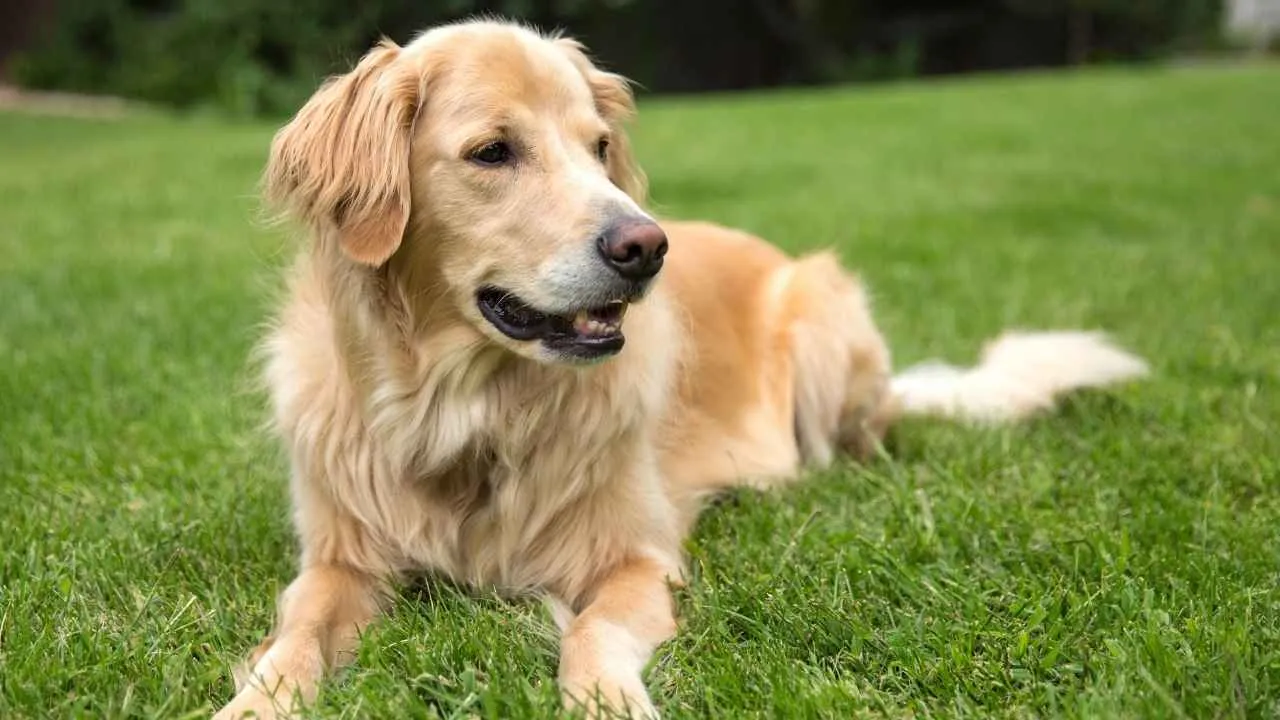
There’s something about a Golden Retriever that instantly makes life feel less chaotic. Maybe it’s those soulful eyes or their peaceful presence, but this breed has a way of making people feel safe and seen. They don’t just follow you around—they emotionally tune in like a best friend who always knows when something’s off.
Golden Retrievers are emotional barometers. They sense when you’re stressed or overwhelmed and shift into support mode without needing direction. No barking, no demands—just a soft nudge, a head on your lap, and a quiet reminder that you’re not alone. That kind of intuitive comfort? You can’t teach it.
These dogs are famously even-tempered. No sudden mood swings or unpredictable energy—just steady, calming companionship. That’s a huge plus for people dealing with anxiety, depression, or chronic stress. Goldens keep the vibe peaceful, even when the world feels upside down.

Ever felt judged while venting your feelings? You won’t get that with a Golden. AKC states that they’re patient listeners, offering unconditional love no matter how messy your emotions get. Whether you’re crying, pacing, or just lying in bed all day, they stay by your side without flinching.
These dogs are also great with emotional support tasks like grounding, nudging, or applying pressure therapy (just by lying across your lap). Plus, they’re easy to train, which makes them ideal for more structured support roles too.
Fun Fact: Golden Retrievers have even been used in airports and courtrooms to help people with anxiety, and they’ve been known to comfort entire rooms just by walking in. That’s some serious emotional magic, don’t you think?
2. Poodle
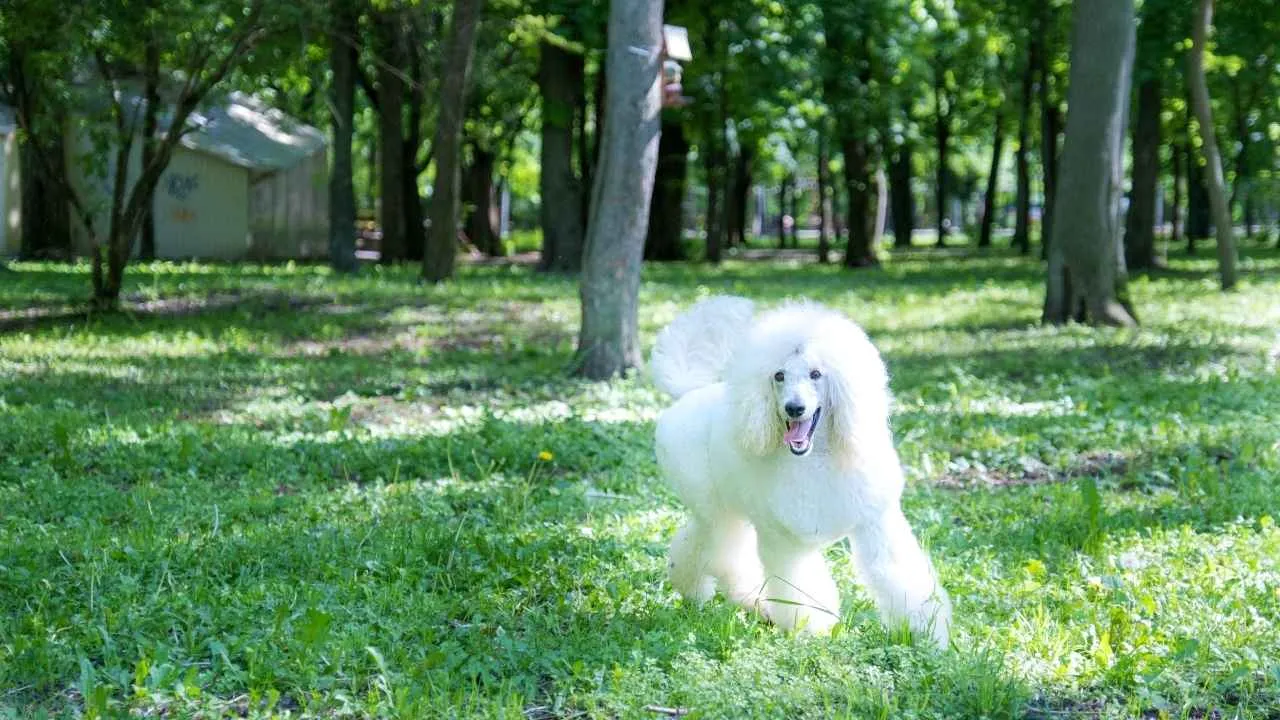
Poodles are the emotional support dogs that can be classy and caring ant the same time. This breed is sharp as a tack, but soft where it counts. These dogs are emotionally present, quick learners, and highly sensitive to human behavior. They’re not just smart—they’re tuned in.
Poodles have a unique gift: emotional responsiveness and adaptability. They can be calm and comforting when you’re down, but playful and energetic when you need a little pick-me-up. It’s like having a mood mirror with four legs and a fluffy topknot.
Their smartness and intelligence go way beyond tricks. Poodles are incredibly aware of tone, body language, and subtle shifts in routine. If you have anxiety or mood swings, this dog catches on faster than most people do. You’ll catch them watching you like, “You good?”
One underrated quality? Their versatility in size. Standard, Miniature, or Toy—there’s a Poodle for every lifestyle. Smaller ones are perfect for apartment living and lap snuggles, while larger ones offer full-body comfort and quiet companionship. Isn’t it nice to have options?
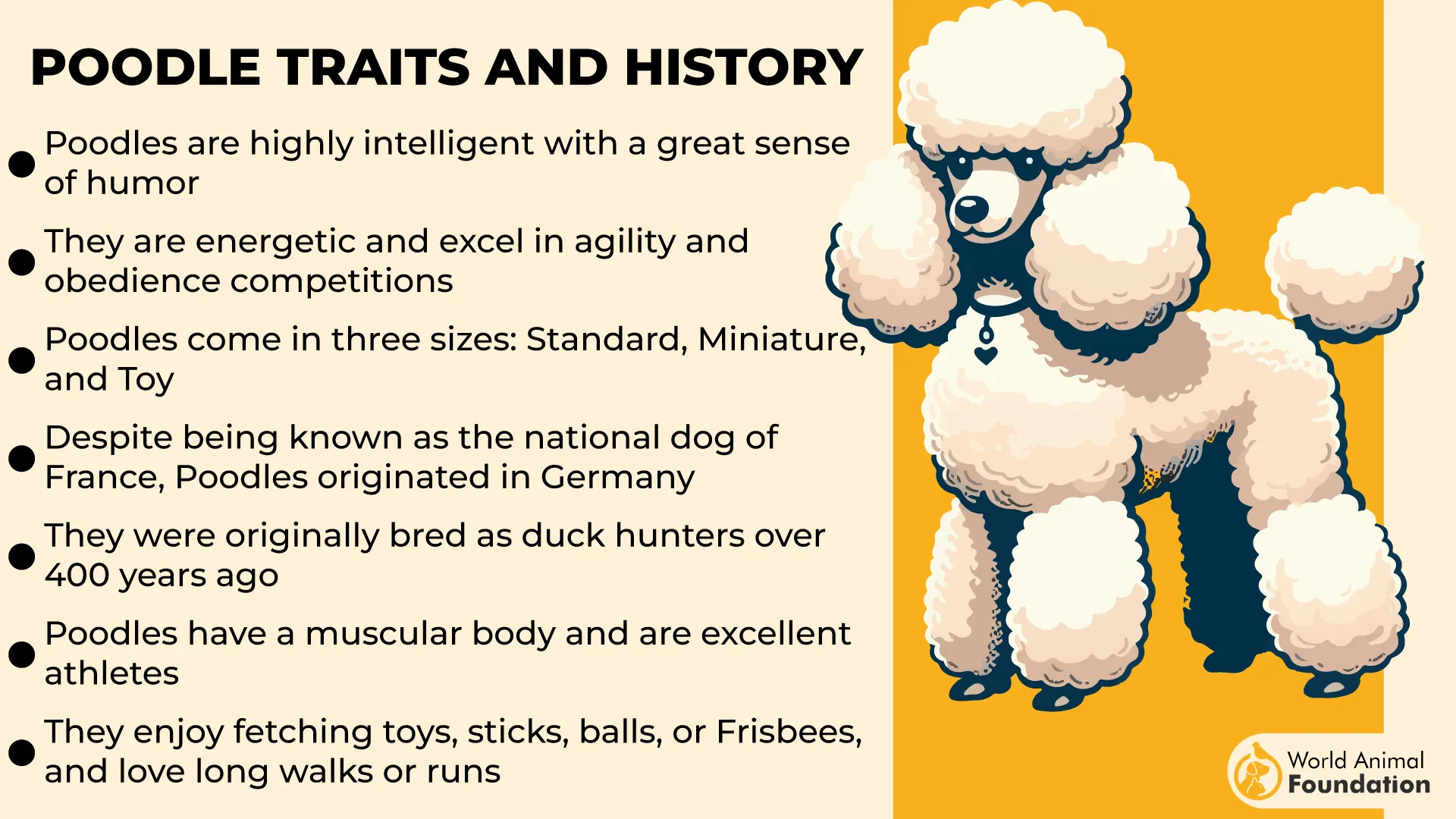
What makes them stand out emotionally is their eagerness to please, says CKC. They genuinely want to make you happy and often anticipate your emotional needs. Having a rough morning? Your Poodle might gently nudge you toward the door for a walk, because fresh air fixes more than you think.
3. Cavalier King Charles Spaniel

If there was ever a dog born to sit in your lap and heal your heart, it’s the Cavalier King Charles Spaniel. These little charmers practically specialize in giving comfort, offering warmth, and emotional presence that feels almost human. They don’t just lie next to you—they melt into you.
Unlike more energetic breeds that need constant activity, Cavaliers are perfectly content to just be with you. They’re low-key, calm, and happiest when they’re physically close. Got a blanket, a couch, and some quiet time? That’s their dream date—and probably yours too.
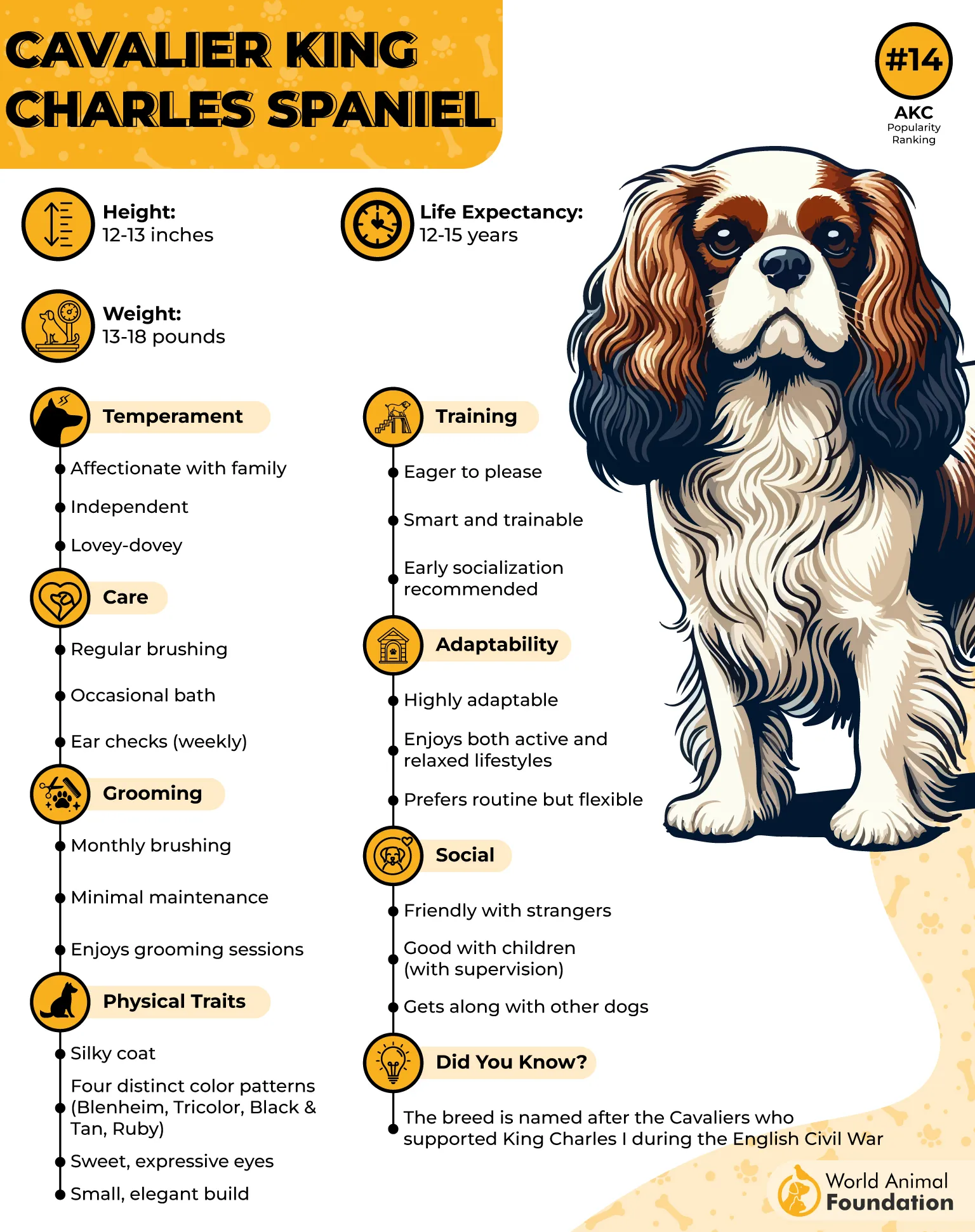
What sets Cavaliers apart is their gentle, almost old-soul demeanor, says Omlet. They don’t overreact or get overstimulated easily, making them ideal companions for people who suffer from emotional overwhelm or sensory sensitivity. Need peace? This dog radiates it.
They’re naturally affectionate without being clingy. You won’t find them demanding attention every second, but they’re always nearby when you need a quiet nuzzle or soft gaze. Their comfort style is subtle, sweet, and incredibly grounding.
These dogs are especially suited for people battling loneliness or social anxiety. Their warm, approachable nature makes it easier to connect with others during walks or outings. Think of them as tiny social bridges with wagging tails.
4. Labrador Retriever
If emotional support had a face, it might just look like a Labrador’s goofy grin. Labs are emotional anchors—cheerful, steady, and loyal to the bone. They’re not just lovable pets; they’re reliable companions who brighten your mood with nothing more than a tail wag and a head tilt.
Labrador Retrievers have a natural ability to lift energy in a room. They’re masters at sensing emotional tension and replacing it with calm, happy vibes. You could be crying your eyes out, and here comes your Lab with a toy, like, “Wanna feel better?” And oddly enough… You do.
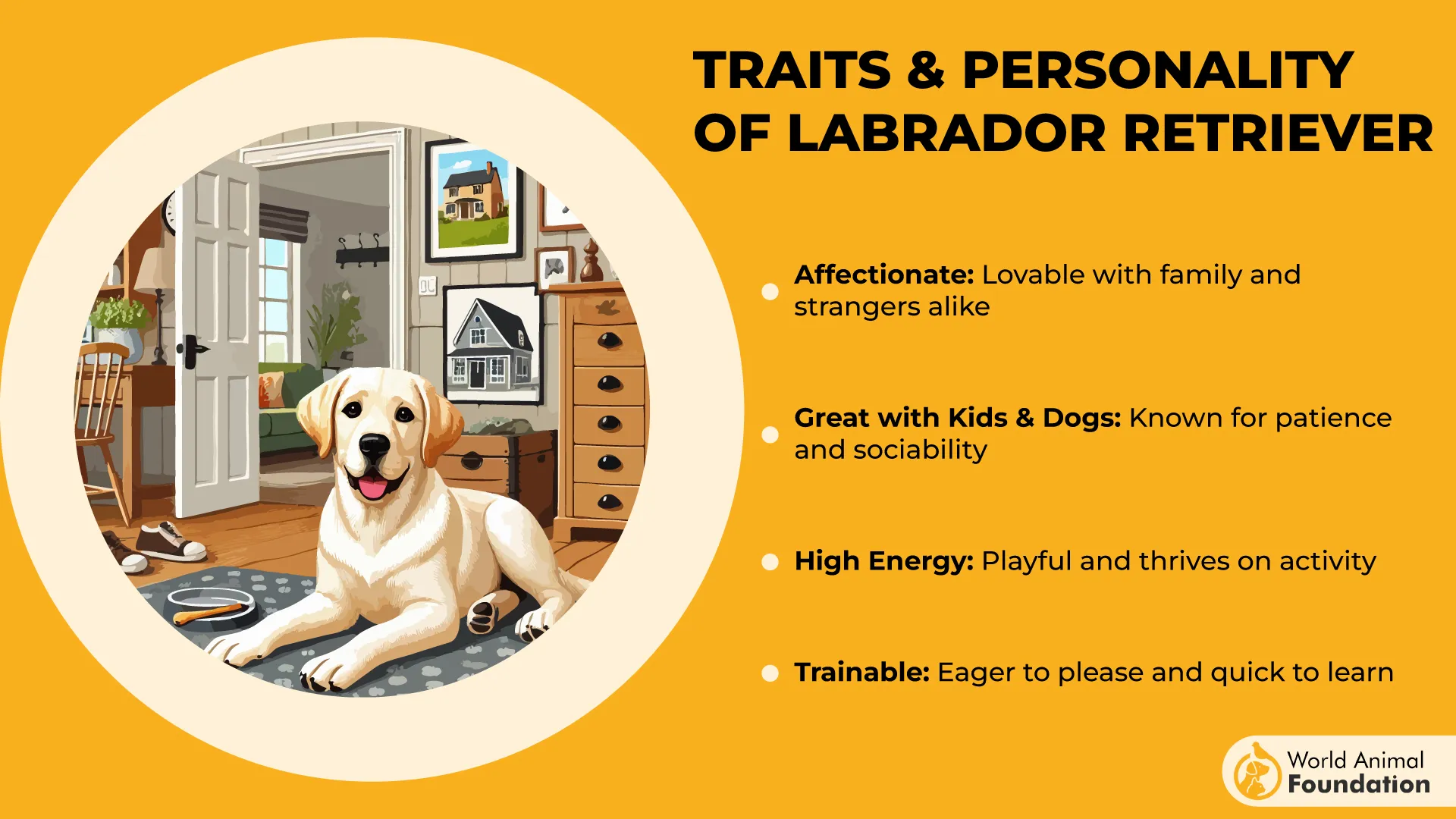
Unlike more reserved breeds, Labs are all in emotionally. They thrive on human interaction and build deep, lasting bonds. That sense of closeness helps people struggling with emotional detachment or isolation feel more connected, without feeling pressured.
Even their physical presence is comforting. Hill’s Pet says that Labs are sturdy but gentle, warm but never overwhelming. They’ll lean into you during anxious moments or lay their head on your lap when your thoughts won’t stop racing. It’s hard to feel alone with 70 pounds of love next to you.
Another cool thing? They’re incredibly routine-friendly. If structure helps you manage your emotional health, a Lab fits right in. Wake up, go out, play, cuddle, repeat—they love it. Their predictability helps bring rhythm to people living with depression or mood disorders.
Labs are also known for their strong eye contact and expressive faces. They seem to communicate without words—and sometimes, that’s all you really need. Who else can say, “Everything’s going to be okay,” without ever opening their mouth?
5. Bichon Frise
The Bichon Frise isn’t just a puffball of cuteness—it’s a walking, tail-wagging antidepressant. These dogs are cheerful little companions who seem to exist purely to make people smile. They literally provide excellent emotional support. Their energy? Light. Their presence? Comforting. Their mission? Pure joy.
One of the most powerful emotional perks of having a Bichon around is its relentless optimism. No matter how gloomy your day is, these pups bounce around like life is one big celebration. Sad on the couch? A Bichon will boop your hand until you crack a smile.
They’re especially helpful for people who need frequent emotional lifting as they have innate ability to provide support to their loved ones. Bichons bring playful, affectionate energy into quiet spaces. They’re like little happiness alarms that remind you to laugh, get up, or just breathe. You’d be surprised how healing that can be.
Despite their peppy nature, they’re not hyper. Bichons are actually pretty well-balanced. They enjoy playtime, sure, but they’re equally content snuggled on your lap while you binge-watch something comforting. It’s all about matching your vibe, and they’re experts at it.
Ever feel overstimulated by loud or unpredictable pets? That’s not a Bichon thing. Petplan says that they’re gentle, cheerful, and have a sweet, mellow bark that won’t spike your anxiety. Their size and softness make them perfect for people who need soothing, not stimulation.d incredibly easy to love. Can emotional support come in a fluffy, 12-pound package? Absolutely.
6. Irish Wolfhound
Don’t let the towering height mislead you—Irish Wolfhounds are some of the gentlest, most emotionally grounded dogs you’ll ever meet. Despite their size, they carry a kind of stillness with them, like walking comfort blankets wrapped in shaggy fur. They’re not just big—they’re deep.
These dogs have an extraordinary calming and gentle effect, says PetMD. Their slow movements, relaxed posture, and almost meditative energy are ideal for people dealing with anxiety or trauma. You can’t help but slow your own breath when one of these giants lies next to you, like, “We’re okay.”
Wolfhounds are particularly attuned to human emotion. They don’t just pick up on distress—they quietly respond, often by leaning into you or lying close. They don’t need attention or drama to be supportive—they’re present in the most peaceful, grounding way. Irish Wolfhounds aren’t reactive or needy. They have a stoic, almost wise nature that’s perfect for people who need space, but not solitude.
These affectionate dogs are also fantastic for people who struggle with feeling unsafe or unsettled. Just the presence of an Irish Wolfhound can make you feel protected, without the aggressiveness of a traditional guard dog. They’re big but never intimidating. It’s comfort with muscle.
Despite their calming presence, they’re very people-focused. Wolfhounds aren’t loners; they bond deeply and stick close. You won’t catch them bouncing off the walls, but they will shadow you from room to room just to make sure you’re okay. It’s subtle loyalty at its finest.
7. Pug
Pugs might be small dogs, but they’ve got hearts that could fill a room—and emotional radar that’s nothing short of impressive. These wrinkly-faced charmers have a natural ability to sense when you’re low and offer the kind of comfort that’s simple, steady, and surprisingly powerful.
They don’t try too hard, and that’s exactly why they’re such good emotional companions. A Pug won’t overwhelm you with energy or expectations—they’ll just sit beside you with their squishy face and soulful eyes, as if saying, “I’m here. No pressure.”
Their compact size makes them perfect for people who need emotional support in small spaces or on the go. You can easily carry or travel with them, and they adapt quickly to different environments. It’s like having a pint-sized therapist in a fur coat.
What’s really unique about Pugs is how expressive they are. Their faces show joy, concern, confusion—basically the whole emotional wheel. That kind of visible empathy can be weirdly comforting. Who needs words when your dog’s face says it all?
Despite their relaxed nature, they’re surprisingly social and playful and can help gently ease you into interactions, states Royal Canin. Strangers often approach Pugs with a smile, so they naturally create opportunities for low-pressure conversations. Who knew a little dog could be such a social bridge?
Fun Fact: In ancient China, Pugs were treasured by royalty and even had their own guards. These days, their only mission is protecting your emotional peace, with cuddles and comedy.
Conclusion
If you’re navigating mental health conditions like anxiety, depression, or post-traumatic stress disorder, the best emotional support dog breeds can make a world of difference. These compassionate dogs offer more than cuddles—they provide emotional support, anxiety relief, and therapeutic benefits that help people regain emotional balance. Certain dog breeds, like the Cavalier King Charles Spaniel, Poodle, Labrador Retriever, German Shepherds, and Golden Retriever, are often seen as ideal emotional support dogs because of their gentle nature, affectionate temperament, and ability to form deep bonds.
Great emotional support animals aren’t the same as service animals or psychiatric service dogs, but they still play a huge role in managing mental health disorders. With the help of a licensed mental health professional, you can get a letter that designates your pet as an emotional support animal under the Federal Fair Housing Act. That means even if your living situation typically restricts dogs or other pets, your emotional companion may be protected under federal law.
From popular dog breeds like Golden Retrievers and Shih Tzus to low-maintenance breeds such as the Boston Terrier, there’s a perfect match for every lifestyle. Some high-energy breeds may require physical and mental stimulation and regular grooming, while others are great for apartment living. Companion dogs like the Yorkshire Terrier or Poodle are highly intelligent, eager to please, and easy to train with proper training. Whether you prefer working dogs, guide dogs, or herding dogs, choosing the right dog means considering emotional needs, energy level, mental stimulation, and compatibility with other breeds or pets.


